By using PURE Goals free slide templates you can create an impressive presentation including a PURE goal-setting section in a few minutes. In this article, we will explore PURE Goals as a methodology for setting goals and list some goal-setting slide templates collected in the PoweredTemplate library.
The history of the PURE Goals methodology can be traced back to the field of positive psychology and goal-setting research. To add even more to SMART and CLEAR tools, like taking into account people’s perceptions and cognitive biases, this framework proposes pure goals.
Table of Contents
- Introduction to the PURE Goals Methodology
- History of the PURE Goals Methodology
- Positive Stated of PURE Goals
- Understanding of PURE Goals
- Relevance of PURE Goals
- Ethical Considerations of PURE Goals
- Examples of PURE Goals
- Conclusion
Introduction to the PURE Goals Methodology
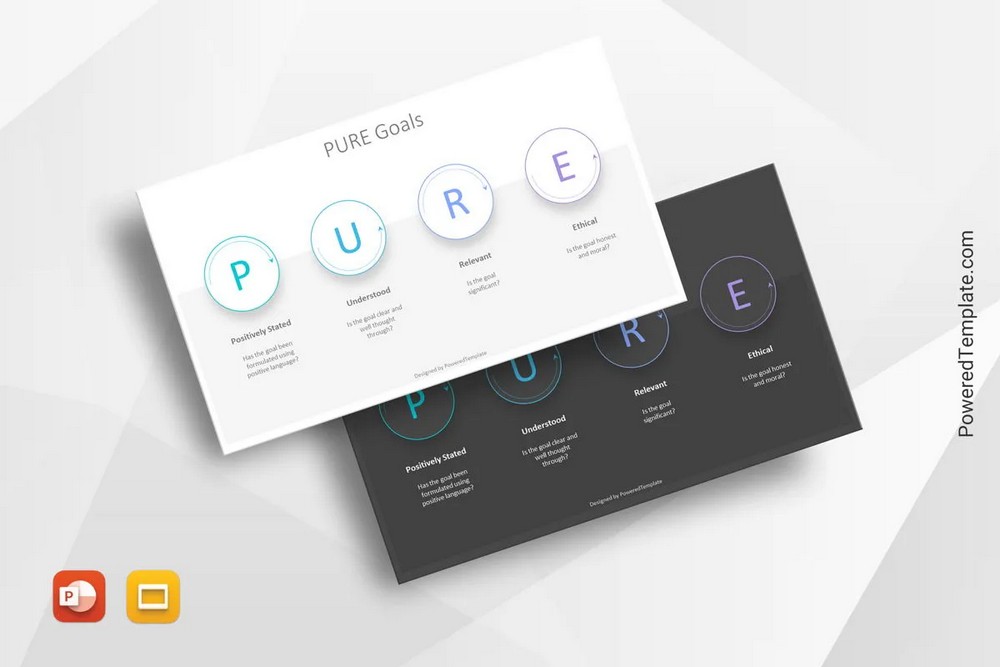
The PURE Goals methodology is a structured framework that aims to optimize the process of goal setting by focusing on four key elements:
- positive,
- understood,
- relevant,
- and ethical goals.
By incorporating these principles into the goal-setting process, individuals and organizations can enhance their effectiveness and maximize the impact of their goals.
-
 Business Goals PowerPoint
Business Goals PowerPoint
is perfect for your impressive style presentations and also flexible for corporate and business presentations. Template all elements are easily editable and customizable to your needs. -
 Business Strategy Powerpoint
Business Strategy Powerpoint
is a set of moves and actions that uses to attract customers, compete successfully, strengthen performance, and achieve organizational goals. -
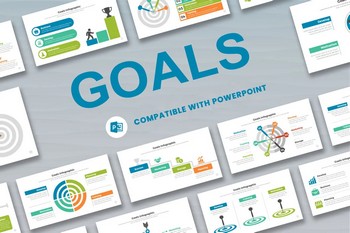 Goals Infographic PowerPoint
Goals Infographic PowerPoint
These infographics can be used to successfully explain difficult concepts and ideas. It will be a helpful tool for understanding different types of risks in an easy, visual way.
The PURE Goals methodology aims to achieve several objectives:
Goal Optimization: By incorporating the principles we list, the PURE Goals methodology seeks to optimize the goal-setting process. This optimization involves aligning goals with desired outcomes, ensuring clear communication and understanding, promoting relevance to the context, and upholding ethical considerations.
Motivation and Engagement: Setting positive goals can enhance motivation and engagement among individuals and teams. Positive goals provide a sense of purpose and direction, inspiring individuals to strive for excellence and contributing to a positive work environment.
Alignment and Collaboration: The PURE Goals methodology promotes alignment and collaboration by fostering clear understanding and shared goals. When goals are effectively communicated and comprehended, team members can align their efforts and work collaboratively towards achieving shared objectives.
Ethical Responsibility: Ethical goals are an essential aspect of the PURE Goals methodology. By integrating ethical considerations into the goal-setting process, individuals and organizations can ensure responsible decision-making, promote fairness and inclusivity, and contribute to the well-being of all stakeholders involved.
By embracing the principles and objectives of the PURE Goals methodology, individuals and organizations can enhance their goal-setting practices, promote positive outcomes, and cultivate a culture of clarity, collaboration, and ethical responsibility.
History of the PURE Goals Methodology
Throughout history, numerous individuals and thought leaders have made significant contributions to the development and refinement of goal-setting methodologies, which have paved the way for the emergence of the PURE Goals methodology. Notable contributors include researchers, psychologists, organizational theorists, and management experts who have explored the intricacies of goal setting and its impact on individual and organizational performance.
-
 Business Goals Google Slide
Business Goals Google Slide
is flexible for corporate and business presentations. This Presentation Template is clean, creative, simple, unique, scalable and multipurpose. -
 Business Strategy Google Slide
Business Strategy Google Slide
include the most known and used strategic models and frameworks, chart, and graphs and is a must-have tool for creating your successful strategy presentation. -
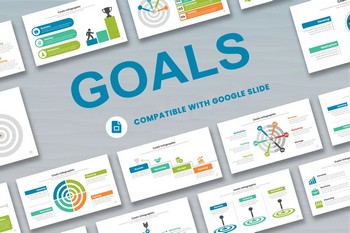 Goals Infographic Google Slide
Goals Infographic Google Slide
These infographics can be used to successfully explain difficult concepts and ideas. It will be a helpful tool for understanding different types of risks in an easy, visual way.
Notable contributors include researchers, psychologists, organizational theorists, and management experts who have explored the intricacies of goal setting and its impact on individual and organizational performance.
The PURE Goals methodology has evolved over time, influenced by advancements in fields such as psychology, organizational behavior, and leadership theory. It has been shaped by empirical research, practical applications, and the collective knowledge gained from studying goal-setting practices across various domains.
Below, we will delve into the positive aspects, understanding, relevance, and ethics in the context of the PURE Goals methodology, providing examples to demonstrate their practical implementation and impact.
Positive Stated of PURE Goals
It is important that you express what it is you are trying to achieve in the positive, because this kind of goal setting creates a sense of purpose, vision, and excitement, evokes enthusiasm, and motivates people to take action.
Inspiring and Motivating
The focus on positive goals within the PURE Goals methodology serves as a source of inspiration and motivation. By seeing positive goals, individuals are more likely to be engaged, committed, and persistent in their pursuit of desired outcomes.
Cultivating a Growth Mindset
Positive goals encourage individuals to adopt a growth mindset, believing in their ability to learn, develop, and overcome challenges. When goals are framed positively, individuals view setbacks and obstacles as opportunities for growth and learning, rather than as failures. This mindset fosters resilience, adaptability, and a willingness to embrace new experiences, ultimately leading to personal and professional growth.
Increasing Confidence and Self-Efficacy
By setting positive goals and experiencing progress towards their attainment, individuals build confidence and self-efficacy. Achieving positive goals reinforces a belief in one’s abilities and strengthens the belief that future goals can be accomplished. This increased confidence and self-efficacy drive individuals to set more ambitious goals and pursue them with greater determination and belief in their own capabilities.
Creating a Positive Work Environment
When organizations adopt the PURE Goals methodology and prioritize positive goals, it contributes to creating a positive work environment. Positive goals promote a sense of camaraderie, collaboration, and shared purpose among team members. A positive work environment not only enhances employee well-being and job satisfaction but also fosters creativity, innovation, and high-performance.
Enhanced Productivity and Performance
The focus on positive goals within the PURE Goals methodology has been linked to increased productivity and performance. Positive goals provide clarity, direction, and a sense of urgency, leading to focused efforts and efficient resource allocation. When individuals and teams are aligned towards positive goals, they are more likely to achieve higher levels of productivity, effectiveness, and ultimately, success.
Improved Well-being and Satisfaction
Setting and working towards positive goals contributes to improved well-being and job satisfaction. When individuals are engaged in meaningful and positive goal pursuits, they experience a sense of fulfillment, purpose, and satisfaction. The alignment between personal values, organizational objectives, and positive goals enhances overall well-being and contributes to a fulfilling work-life balance.
Understanding of PURE Goals
It is important that the goals are understood especially if you as a leader or manager. Are you sure you are on the same page with your team? What assumptions are being made about the goal? Do you use the same glossary as your team does?
-
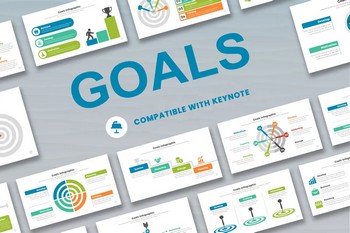 Goals Infographic Keynote
Goals Infographic Keynote
These infographics can be used to successfully explain difficult concepts and ideas. It will be a helpful tool for understanding different types of risks in an easy, visual way. -
 Business Strategy Keynote
Business Strategy Keynote
outlines how business should be carried out to reach the desired ends and include most known and used strategic models and frameworks and is a must-have tool for creating your successful strategy presentation. -
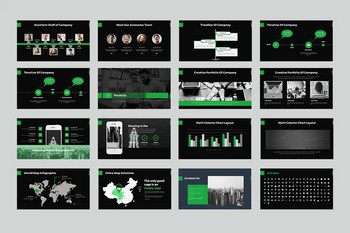 Business Goals Keynote
Business Goals Keynote
is perfect for your impressive style presentations and also flexible for corporate and business presentations. This Presentation Template is clean, creative, simple, unique, scalable and multipurpose.
Clear Communication of Goals
One of the fundamental aspects of PURE Goals is the clear communication of goals. It is crucial to articulate goals in a concise and understandable manner, using language that is accessible to all stakeholders. Clear communication ensures that everyone involved has a shared understanding of what needs to be achieved and the desired outcomes.
Shared Understanding
Achieving a shared understanding of goals involves actively engaging stakeholders in discussions, seeking clarification, and addressing any potential misunderstandings. By fostering a shared understanding, individuals and teams can align their efforts, collaborate more effectively, and work towards a common purpose.
Alignment with Values and Objectives
Understanding PURE Goals requires aligning them with the values and objectives of individuals, teams, and organizations. When it is done, they become more meaningful and motivating. The alignment ensures that goals are relevant, purposeful, and contribute to the overall vision and mission.
Breaking Down Complex Goals
Complex goals can be overwhelming and challenging to understand. In the context of PURE Goals, it is crucial to break down complex goals into smaller, manageable tasks or sub-goals. Breaking down goals enhances understanding by providing a clear roadmap of the steps required to achieve the larger goal. This approach also enables progress tracking and adjustments as necessary.
-
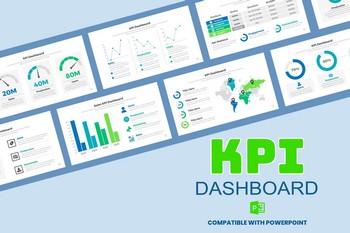 KPI Infographic PowerPoint
KPI Infographic PowerPoint
is designed to track and communicate key business performance indicators and provides a tool for presenting complex data clearly and engagingly. -
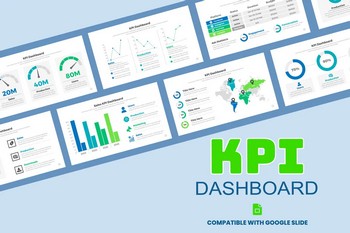 KPI Infographic Google Slide
KPI Infographic Google Slide
provides a tool for presenting complex data clearly and engagingly to convey your organization’s progress and success metrics with impact. -
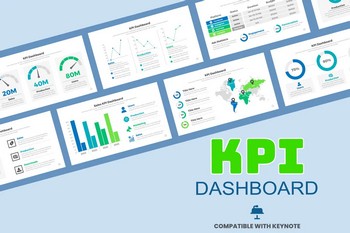 KPI Infographic Keynote
KPI Infographic Keynote
highlights goals, insights, and trends in a visually compelling way to impress your audience by effectively communicating your organization’s performance measures.
Feedback and Clarity Checkpoints
Regular feedback and clarity checkpoints are vital for understanding PURE Goals. These checkpoints provide opportunities to assess progress, address any confusion or ambiguity, and make necessary adjustments. Feedback loops ensure that individuals and teams remain on track, comprehend the goals, and have the necessary support to achieve them.
Engaging Stakeholders
Engaging stakeholders in the goal-setting process promotes understanding and ownership. By involving stakeholders from the beginning, their perspectives, insights, and expertise can be incorporated into goal formulation. This engagement fosters a sense of responsibility and commitment, contributing to a deeper understanding and increased motivation towards goal achievement.
A comprehensive understanding of PURE Goals lays the foundation for effective goal setting and implementation. When goals are clearly communicated, comprehended, and aligned with values and objectives, individuals and teams can work cohesively towards their attainment.
Relevance of PURE Goals
Relevance of PURE Goals means focusing on something that makes sense with broader business goals (company strategy etc) as well as compliance with the current priorities. In this section, we will explore how the alignment of goals with current needs, challenges, and priorities contributes to their effectiveness and impact.
Addressing Current Needs
One of the key principles of the PURE Goals methodology is setting goals that are relevant to the current needs of individuals, teams, and organizations. By identifying and addressing these needs, goals become meaningful and purposeful, driving motivation and focus. Relevance ensures that resources and efforts are directed towards areas that have the greatest impact and value.
Adaptability to Changing Contexts
The PURE Goals methodology recognizes that contexts and circumstances can evolve over time. Goals should be flexible and adaptable to accommodate these changes. By regularly reviewing and reassessing goals, individuals and organizations can ensure that they remain relevant and aligned with the shifting landscape. This adaptability enhances goal effectiveness and enables proactive responses to emerging opportunities and challenges.
Strategic Alignment
Relevance in the PURE Goals methodology extends to aligning individual and organizational goals with broader strategic objectives. When goals are aligned with strategic priorities, they contribute to the overall vision and mission. This alignment enhances coordination, cooperation, and synergy across different levels and functions within an organization. It ensures that efforts are synchronized towards common goals and fosters a sense of shared purpose and direction.
Maximizing Resource Allocation
Setting relevant goals in the PURE Goals methodology enables efficient resource allocation. By focusing resources on areas that align with current needs and priorities, organizations can optimize their use of time, budget, talent, and other resources. This maximization of resources enhances productivity and minimizes wastage, ensuring that efforts are channeled towards activities that deliver the most significant outcomes.
Promoting Continuous Improvement
Relevant goals in the PURE Goals methodology encourage continuous improvement and learning. By setting goals that address existing challenges and areas for growth, individuals and organizations foster a culture of innovation and development. Relevant goals act as benchmarks for progress, providing opportunities for reflection, refinement, and ongoing enhancement of performance and capabilities.
Engaging Stakeholders
The relevance of PURE Goals extends to stakeholder engagement. By involving stakeholders in the goal-setting process and considering their perspectives and needs, goals become more meaningful and relatable to those involved. Engaging stakeholders promotes collaboration, buy-in, and shared ownership of goals, enhancing their relevance and increasing the likelihood of successful goal attainment.
By emphasizing relevance in goal setting, the PURE Goals methodology ensures that goals remain responsive to changing needs and contexts. This relevance enhances motivation, coordination, and resource utilization, leading to greater effectiveness and impact.
Ethical Considerations of PURE Goals
Ethical considerations in a PURE methodology context mean that the details of how you feel while and when achieving that goal are included in the goal statement. Thus, we need to align with what is important to us and what we believe to be fair and worthy goals.
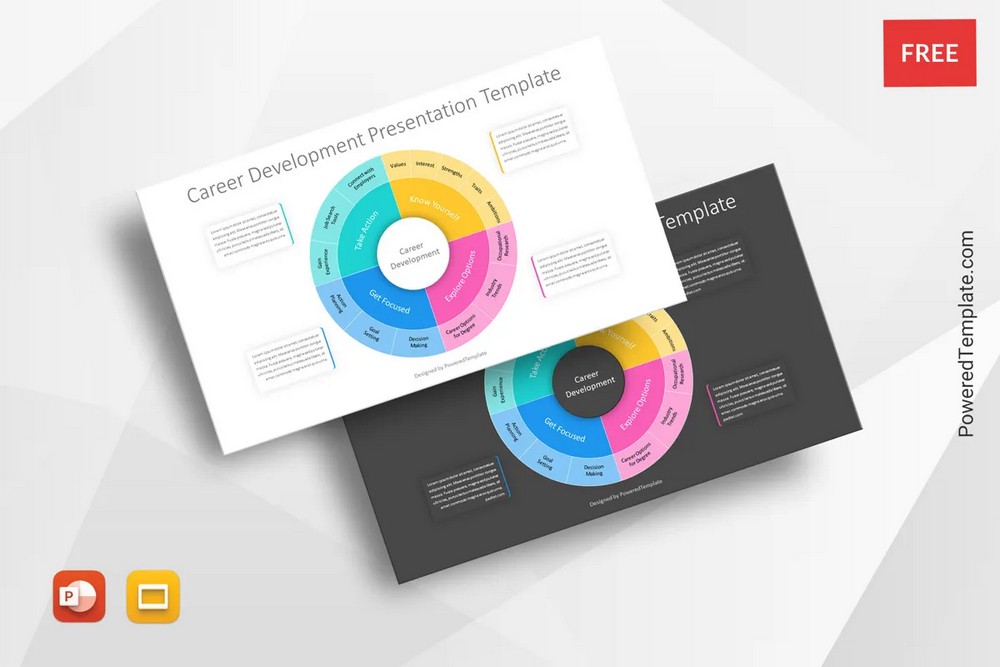
Goal Alignment with Ethical Standards
The PURE Goals methodology places a strong emphasis on aligning goals with ethical standards and principles. Goals should not only be effective and impactful but also morally sound and socially responsible. By considering the ethical implications of goals, individuals and organizations can avoid pursuing objectives that may harm others or violate ethical norms. Ethical alignment ensures that goals contribute positively to individuals, organizations, and society as a whole.
Transparency and Accountability
Ethical considerations within the PURE Goals methodology emphasize the importance of transparency and accountability. Goals should be communicated openly, ensuring that all stakeholders are aware of the objectives and intentions. Additionally, individuals and organizations should be held accountable for their goal pursuit, taking responsibility for the consequences of their actions and decisions. Transparency and accountability foster trust, integrity, and ethical behavior throughout the goal-setting process.
-
 HR Human Resources PowerPoint
HR Human Resources PowerPoint
This HR presentation template allows you to showcase the services you provide, your team, and your team’s expertise. -
 HR Human Resources Google Slide
HR Human Resources Google Slide
Companies that have HR services will find this ready-to-use Human Resources template beneficial when writing HR proposals, internal presentations, and documents for new employees. -
 HR Human Resources Keynote
HR Human Resources Keynote
Provide your clients with a detailed outline of payroll, office schedules, benefits, and insurance.
Fairness and Equity
Incorporating fairness and equity into goal setting is an essential ethical consideration of the PURE Goals methodology. Goals should be designed and distributed in a manner that promotes fairness, equal opportunity, and inclusivity. The methodology discourages discriminatory practices or the pursuit of goals that perpetuate unjust systems or inequalities. By promoting fairness and equity, PURE Goals contribute to a more just and inclusive society.
Respect for Stakeholders
Respecting the rights, dignity, and well-being of stakeholders is a core ethical principle of the PURE Goals methodology. Goals should not infringe upon the rights of individuals or exploit vulnerable populations. Instead, they should uphold the principles of respect, empathy, and consideration for all stakeholders. By prioritizing the well-being of individuals and communities, PURE Goals foster ethical behavior and responsible goal pursuit.
Environmental Sustainability
The PURE Goals methodology recognizes the importance of environmental sustainability as an ethical consideration. Goals should be aligned with sustainable practices, promoting the preservation and conservation of the environment. By incorporating sustainability into goal setting, individuals and organizations contribute to the well-being of the planet and future generations, ensuring ethical stewardship of natural resources.
Ethical Decision-Making
Ethical considerations within the PURE Goals methodology extend to the decision-making process. Individuals and organizations are encouraged to make ethical choices when setting and pursuing goals. This involves considering the potential impact on stakeholders, evaluating the ethical implications of alternative courses of action, and choosing the path that aligns with ethical standards and values.
By integrating ethical considerations into goal setting, the PURE Goals methodology promotes responsible and conscientious behavior, fostering a culture of integrity, fairness, and sustainability.
Examples of PURE Goals
Personal Development: “I will dedicate 30 minutes every day to learning a new skill or acquiring knowledge in my field of interest. By the end of six months, I aim to be proficient in that skill and apply it in my work or personal projects.”
Explanation: This personal development goal is positive, as it focuses on acquiring new skills and knowledge. It is understandable, as it clearly defines the timeframe (six months) and the expected outcome (proficiency). It is relevant to the individual’s interests and aligns with their professional growth. Moreover, it is ethical, as it promotes self-improvement without causing harm to others.
Team Collaboration: “Our team will hold a monthly brainstorming session to generate innovative ideas and solutions for improving our product/service offerings. We will implement at least one idea per quarter, aiming to enhance customer satisfaction and market competitiveness.”
Explanation: This team collaboration goal is positive, as it emphasizes generating innovative ideas and solutions. It is understandable, as it outlines the frequency of the sessions (monthly) and the desired outcome (implementation of ideas). It is relevant to the team’s goals of improving customer satisfaction and market competitiveness. Furthermore, it is ethical, as it promotes collaboration and aims to benefit both the team and customers.
Organizational Sustainability: “Our organization will reduce carbon emissions by 20% within the next two years by implementing energy-efficient practices, promoting recycling, and encouraging alternative transportation options for employees.”
Explanation: This organizational sustainability goal is positive, as it focuses on reducing carbon emissions. It is understandable, as it specifies the target (20% reduction) and the strategies (energy-efficient practices, recycling, alternative transportation). It is relevant to the organization’s commitment to environmental sustainability. Additionally, it is ethical, as it promotes responsible resource management and contributes to mitigating climate change.
Community Engagement: “Our company will organize quarterly volunteer activities to support local community organizations and address social issues. We aim to positively impact the lives of at least 100 individuals in our community by the end of the year.”
Explanation: This community engagement goal is positive, as it focuses on supporting local community organizations and addressing social issues. It is understandable, as it specifies the frequency of the volunteer activities (quarterly) and the desired outcome (positive impact on 100 individuals). It is relevant to the company’s commitment to social responsibility and community involvement. Moreover, it is ethical, as it promotes giving back to the community and contributing to social well-being.
These examples highlight how PURE Goals can be applied to various areas of personal, team, and organizational development. By setting goals that are positive, understandable, relevant, and ethical, individuals and organizations can strive for meaningful progress, success, and positive impact.
Conclusion
In conclusion, PURE Goals provide a comprehensive framework for setting goals that are positive, understandable, relevant, and ethical. By adopting this methodology, individuals and organizations can enhance their goal-setting processes, achieve meaningful progress, and contribute to a better future for themselves and society as a whole.


